
Do you nap regularly? Plenty of us sneak in a little nap or two during the day. Sometimes that’s the only way to have the energy to keep going. But, what is your napping habit doing for your health? Are naps good for you or are they destroying your sleep at night?
The topic is a crucial one. After all, getting insufficient sleep is linked to many serious problems, including lack of alertness, memory problems, reduced quality of life, increased disease risk, and more.
We don’t just need enough sleep either. Getting high-quality sleep is equally important for keeping you healthy and well.
Napping could easily help with sleep, allowing you to catch up on missed rest while giving you a boost to your energy during the day. Yet, naps could have problems too, potentially disrupting your nighttime sleeping or leading to too much sleep.
So, which is it? Are naps helpful or not?
Are Naps Good For You?
- The Benefits Of Napping
- How Napping Can Be A Problem
- Alternative Sleep Cycles
- How To Nap Well
- Final Thoughts
The Benefits Of Napping

Increases Alertness And Cognitive Performance
Naps are often used as a quick pick-me-up, an easy way to boost your energy the day. It’s amazing just how significant a 20- or 30-minute nap can be. The effect is often stronger than an energy drink (and napping tends to be healthier too).
So, if you’re struggling to concentrate, a short nap might be exactly what you need. You could even jump straight back into work after your nap, finding yourself re-energized and raring to go.
This effect is so well-recognized that a surprising number of companies now allow you to nap during office hours. Some even have dedicated nap rooms. Most of the time you’re napping on your break, but even so, it’s fantastic to see some businesses taking the initiative in this area.
The ability to think and feel better after a nap is reason enough for most of us to try it out.
The trick, however, is to keep your naps short. Anything longer than 20 or 30 minutes may have the opposite effect and make you feel sluggish instead.
You May Sleep Better
While naps are sometimes a bad thing for nighttime sleeping, this isn’t always the case. Sometimes naps actually help your sleep, as you get just enough rest to get you through to the end of the day.
Plus, the right pattern of napping may give you more time in NREM and REM sleep than you’d get otherwise. This is an important outcome, especially for anyone who gets broken sleep during the night.
Decreases Stress, Sleepiness, And More
Not getting enough sleep causes many issues. It only takes a night or two of lost sleep before most of us start to get a little cranky and rough around the edges. Regularly missing out on sleep can make matters even worse, especially when this happens for a long time.
Impaired memory, feelings of fatigue, lack of alertness, and being sleepy are just a few of the symptoms of insufficient sleep. Relationships often suffer too, as you’re harder to be around when you’re tired and probably snap at the people you love.
In the long term, lack of sleep can increase the risk of many health problems.
While naps rarely replace a good night’s sleep, they can help you to catch up on rest when you need to, which does decrease some of the symptoms of sleep deprivation.
And, in some situations, napping might be your only option. New parents are familiar with this one, as are many caregivers. After all, there are plenty of situations where sleeping the whole night through just isn’t realistic. Using naps well could reduce any negative impacts on your health.
Indeed, studies even show that short naps can decrease the risk of heart failure and stroke.
You’re Responding To The Needs Of Your Body
We’re taught that sleeping 8 hours is normal, yet the pattern actually comes from modern society – and isn’t always the best approach. Napping gives you the chance to pay attention to your body, sleeping when you need to and not when you don’t.
This can be powerful for some situations.
The trick is to be wise about it. Pay attention to when it feels like you need sleep and how your body responds to a nap. This will help you sleep at the right time.
How Napping Can Be A Problem
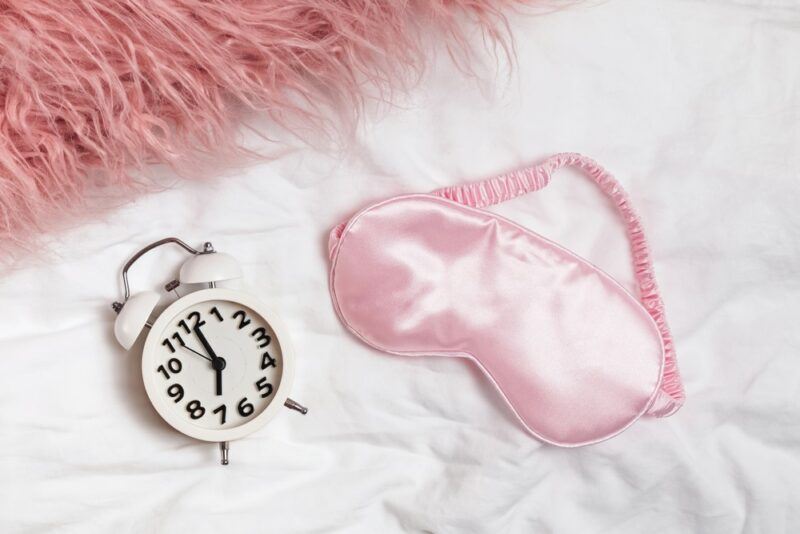
Sleep May Become More Difficult
Many of us already struggle with sleep, finding it difficult to either fall asleep or stay asleep. Napping can seem like the perfect solution, as it helps to make up for any missed sleep.
However, napping often has the opposite effect. Because you’re getting rest during the day, you’re less tired at night, and sleeping becomes harder still.
Plus, there’s a mental component to insomnia. The more you struggle to sleep, the more worried you are about, which then makes sleeping more difficult. So, anything that makes sleeping at night trickier can dramatically increase insomnia symptoms.
If you do struggle at night, naps may not be worth the risk. It’s often better to stay awake throughout the day, even if its difficult, so that you’re tired enough to sleep well at night.
Napping Often Isn’t Practical
Most workplaces don’t encourage napping, so if you work a regular 9-to-5 day, napping may not be practical at all.
You could still nap during the weekend and holidays but doing so isn’t a great plan. If you do this, you may start to rely on napping, then find that you have less energy while you’re trying to work.
Naps Influence Your Sense Of Routine
Naps change the rhythm and routine of your day. This becomes a problem if you’re taking unplanned naps, like dozing whenever you feel tired.
Having a regular routine is often crucial for mental health. Indeed, many people struggled during COVID-19 lockdowns because most of their normal routines disappeared.
Thankfully, there’s a way around this issue. Rather than napping sporadically, try planning your naps instead. This maintains a sense of routine, while still allowing you to nap.
For example, you might have a 90-minute nap in the mid-afternoon and then sleep 5 or 6 hours at night. As we’ll discuss later, that approach is a common sleep pattern that works well for many people. Or, you might allow yourself one 20-minute nap per day. Setting an alarm can help ensure that you don’t oversleep.
Can Decrease Quality Of Life
Napping can influence your activities and social life too. By spending some of the day asleep, you’re decreasing the time you have available for the rest of your life, including work, social activities, exercise, and simply getting out.
The effects are strongest if you’re taking long naps or if you’re napping often.
Plus, napping too much can make you feel lethargic. This decreases the energy and enthusiasm that you have for other parts of your life – making quality of life issues even more significant.
Napping May Be Linked To Mental Health Issues
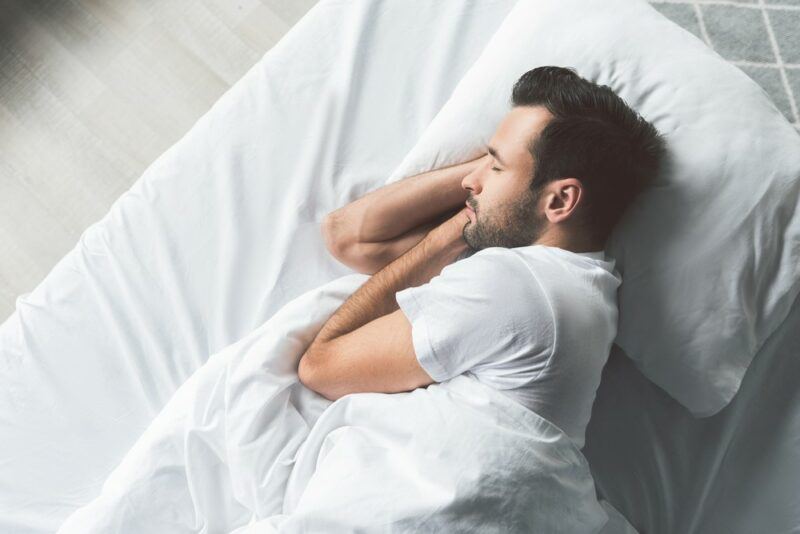
Napping is often associated with depression. Many people with depression sleep more than they need to, often taking multiple naps during the day, then struggling to sleep at night. Doing so can easily make depression symptoms worse.
The effects aren’t limited to making night-time sleeping more difficult either.
Depression naps (yes, they even have a name) are concerning because they’re often an avoidance technique. People end up napping rather than dealing with what they’re feeling or what’s going on in their life.
Doing so never bodes well for long-term mental health. After all, if you’re avoiding all the difficult things, you’re not working through them, and they’re not likely to get better.
Depression, sleep, and napping are linked in other ways too. Napping can lead to less sleep at night or too much sleep, especially among depressed people. Neither of these effects helps with depression at all. There’s even the risk that too much or too little sleep increases the risk of depression.
Alternative Sleep Cycles
Naps sometime sound unhealthy because we’ve grown up with a fixed idea – that we should get roughly 8 hours sleep every night. Experts often suggest having a regular sleep/wake pattern too, which means going to bed at the same time each night.
Yet, sleeping 8 hours at a time isn’t the only option. There are other sleep patterns as well, one that may be just as healthy. Most of these rely on naps during the day.
Biphasic Sleeping
The simplest alternative is a biphasic cycle, where you have two sleep periods not one. This could mean sleeping for 5 to 6 hours each night and then having a nap for 1 to 2 hours during the day.
There’s also segmented sleep, where people go to bed early, sleep for part of the night, then return to bed to finish sleeping in the morning.
Breaking up the sleep cycle isn’t as unusual as you might think. Some countries already have a tradition of a siesta during the early afternoon, when the temperature is high.
The biphasic cycle is also a logical one for people who struggle sleeping 8 hours straight. If you naturally wake up during the night and struggle to get back to sleep, this could be a useful technique.
Polyphasic Sleeping
Other sleep cycles are more extreme, involving multiple naps during the day. Such sleep cycles may be attractive, as they reduce the amount of sleep you need, giving you longer waking hours and more time to do the things you love.
However, polyphasic cycles tend to be strict. You need to stick to the sleep and wake times to see benefits, which could be tough on your work and social life.
The most common types include the following:
- Everyman. This variation focuses on short naps, just 20 minutes, and a long sleep of 3.5 hours. It’s a flexible approach, where you can change the timing of your naps as you need to.
- Dymaxion. This strict approach involves having 4 30-minute naps, evenly spaced throughout the day. The spacing makes the schedule difficult to adapt to. You’re not getting that much sleep either.
- Uberman. Like dymaxion, this schedule involves equally spacing your naps throughout the day. But, this time, you’re having 6 to 8 naps of 20 minutes each. It’s an inflexible approach and means you’re napping every 4 hours or so. As such, this sleep schedule won’t work for anyone with activities that last longer than 4 hours.
Be cautious with polyphasic sleeping too. These approaches all cut down the amount of sleep you get in a 24-hour window. Doing so might be sustainable in the short term, there could be negative long-term effects.
How To Nap Well

In many ways, naps aren’t good or bad. Their effects are based on how the practice fits into your needs. After all, if excessive napping is killing your ability to sleep at night, it might not help much at all, but if it is improving your sleep, the benefits of napping are easy to see.
This means that you need to think and plan a little bit. This way you can get the most out of napping and not compromise your health.
Experiment And Pay Attention To Your Body
The first step is to look at how you feel. Does a short nap make you more energized or simply groggy? If the latter is true, then your current approach may not be working.
What about your ability to focus and think clearly? Struggling in those areas can also be a sign that your sleeping patterns aren’t right.
Think about your nights too. Is it easy to sleep a full night or do you always wake before morning?
If your current sleep pattern isn’t working, then why not try to find a better one? The trick here is to choose an approach that you want, follow it for a while, and then see how you feel. Following it for a while is important, as your body needs time to adjust.
Set An Alarm
Napping is often a problem because we overdo it. It’s easy to simply lie down for a 5-minute nap and wake up again a few hours later.
Getting around this is simple – set an alarm. Most of the time, a 20-minute or 30-minute nap should be all you need. This is enough to reenergize you, without making you groggy.
If you’re following a biphasic cycle, you might need a longer nap. Many people aim for 90 minutes, as this lets you complete a full sleep cycle.
Setting an alarm is important here too, as you could easily sleep for too long.
For anyone who struggles with the snooze button, here’s a simple trick – put the alarm clock (or your cell phone) on the other side of the room. This way you’re forced to get up to turn the alarm off. Often, doing so will be enough to break that urge to go back to sleep.
Think About Your Needs
Lifestyle is an important factor too. If it’s easy for you to get 8 hours of uninterrupted sleep each night, then napping could be more harmful than helpful.
But, if a full night of sleep is difficult, then napping or an alternative sleep schedule could be the answer.
For example, if you struggle with joint pain, lying own for 8 hours at a time could be too much. Caregivers and new parents might turn to napping as well, as they’re likely to be woken at least once during the night.
People with mental health issues should be wary of napping. While napping could help you to make up for lost sleep, it could easily make your sleeping patterns worse and prolong any mental health challenges.
Because the relationship between sleep and mental health is so complex, it’s often best to talk to your doctor or therapist before relying on naps regularly. They may help you work out the best way to nap, so you get the benefits of doing so without any risks.
Why Are You Napping?

Finally, think about why you’re napping. If you’re doing so to boost alertness and productivity, then napping could be a healthy choice. That’s especially true if you’re following a biphasic sleeping pattern.
Napping to escape the world, on the other hand, isn’t a great plan. If you feel like you must do so, then set an alarm so that you only sleep for 20 minutes or so, rather than hours.
If napping is the only way you have enough energy to get through the day, it could mean there’s a more serious problem. For example, undiagnosed sleep apnea can mean that you still feel drowsy even after a full night’s sleep.
Some nutrient deficiencies and chronic conditions can lead to persistent fatigue as well. So, if you feel that you need naps as well as a full night’s sleep, it may be time to talk to your doctor.
Final Thoughts
Naps are a mixed bag. They can be good for you if you plan them well and nap for the right reason. However, naps can easily be a serious problem too, increasing the risk of mental health problems and promoting disordered sleep.
To get the most out of napping, you need to pay attention to your body and plan well.
Having some type of schedule is key – regardless of whether you’re following a biphasic or polyphasic sleep schedule or are just napping every so often. Without a schedule, you can easily end up sleeping too much or not enough. Neither outcome is good for your health.
And, if you need a random nap to get through the day – make sure that you set an alarm clock. Seriously. A 20-minute power nap can leave you feeling revitalized and rearing to go. Napping for an hour or more on top of a full night’s sleep is likely to make you feel more tired, not less.
Frequently Asked Questions
How Long Should A Nap Be?
Short naps of between 10 and 20 minutes may be the best. This length gives you most of the benefits from the nap without making you feel too tired.
However, if you’re sleep deprived, your naps may need to be longer. In this case, 90 to 120 minutes may be necessary to get you back on your game.
Are Naps Good For Weight Loss?
Surprisingly, napping in the afternoon might help with weight loss by helping you to burn more calories (although, the effect isn’t dramatic). Naps are also a much healthier option than turning to sugar and energy drinks when you’re tired.
There may be other impacts too, like how napping might improve your metabolism and boost your mood. More research is needed, of course, but naps certainly don’t promote weight gain.
Do Naps Make You More Tired?
While naps can make you more alert, they can also have the opposite effect and make you more tired. Which effect they have depends on the length of your nap and how much rest you actually need.
In particular, napping for more than 30 minutes will often make you groggy rather than energizing you. The same is true for a 60 minute nap. Realistically, you should only go beyond 30 minutes if you’re not getting enough sleep at night.
Is It Healthy To Nap Every Day?
There are mixed opinions on this topic and research is still being conducted.
Some authors suggest that short naps each day may be helpful, providing you with extra energy and focus. Others suggest that if you need to nap every day, it might be a sign that you’re not getting enough sleep or have a health problem that’s causing fatigue.
The answer may vary from person to person, depending on your unique sleep pattern and why you’re napping. As such, you may need to experiment with napping. Pay particular attention to how you before and after a nap, along with how your sleep is affected.
Does A Nap Count Towards Sleep?
Naps can help you get extra rest, particularly if you’re not getting enough sleep during the night. This is why napping often improves alertness and mood, while decreasing fatigue.
However, it’s not just the number of hours in bed that are relevant. Short naps, particularly late in the morning, are mostly made up of non-REM sleep and only occasionally REM sleep. Longer and later naps tend to have more deep sleep components, which may make them more restorative and more like regular sleep.
As a result, many short sleeps throughout the same won’t give you the same rest you get from sleeping during the night.

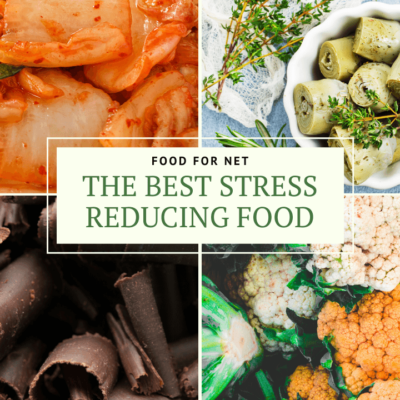



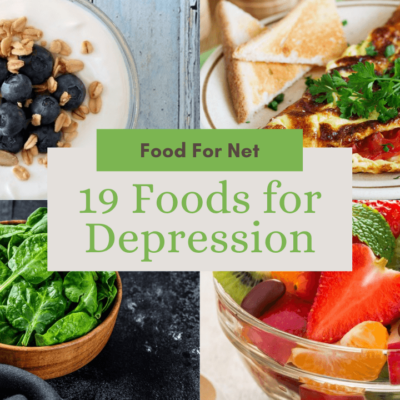
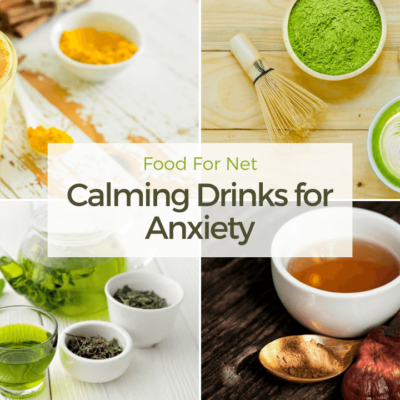
 13 Root Vegetables and the Reasons Why You Should Have Them in Your Diet
13 Root Vegetables and the Reasons Why You Should Have Them in Your Diet
Leave a Reply